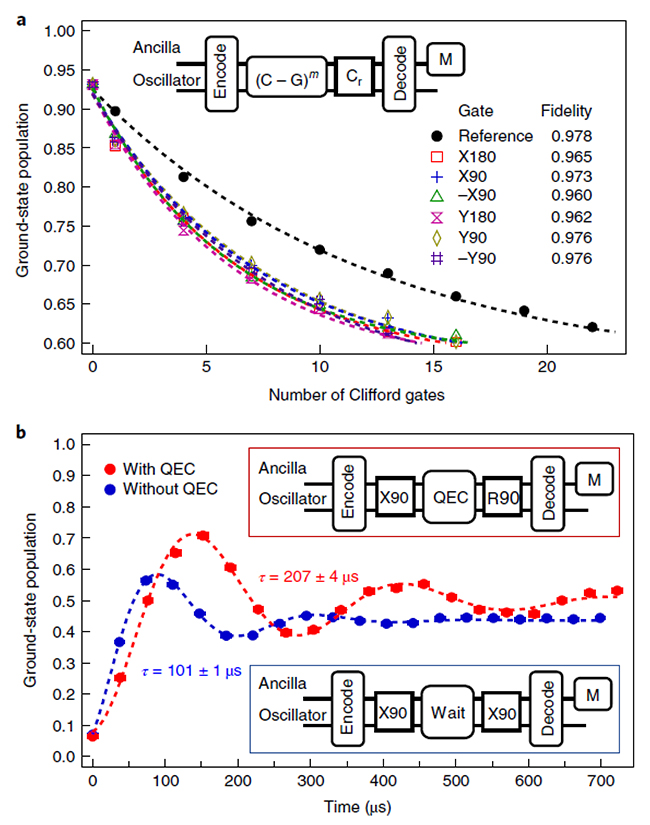Center for Quantum Information at Tsinghua University Demonstrates Binomial Bosonic Quantum Error Correction Code
In collaboration with University of Science and Technology of China and Yale University, Center for Quantum Information (CQI) at Tsinghua University demonstrates for the first time both the binomial bosonic quantum error correction (QEC) code and universal gate set operations on a single logical qubit. This work was recently published online in Nature Physics, s41567-018-0414-3.

Figure 1: Schematic of the binomial bosonic QEC code.
Due to the fragile nature of quantum information, QEC against unwanted errors is necessary and has long been considered as the holy grail of fault-tolerant quantum computing. Different from the challenging standard QEC schemes based on multiple physical qubits, the group at CQI of Tsinghua University uses a hybrid system consisting of a superconducting qubit and a bosonic microwave cavity. Quantum information is encoded on superpositions of photon Fock states in the cavity with carefully chosen binomial coefficients, which can correct single photon losses, the dominant error channel of this system. This QEC scheme benefits from the infinite dimensional Hilbert space of the cavity for redundant information encoding without increasing the number of error channels, thus greatly reduces the hardware requirement.

By using the fast real-time feedback control technique, the group demonstrates repetitive QEC approaching the break-even point for error correction and achieves full control on a single logical qubit with a high-fidelity (97% average process fidelity) universal quantum gate set. The group also demonstrates a Ramsey experiment on the corrected logical qubit with a coherence time improvement by a factor of two. These results pave the way towards fault-tolerant QEC and gate operations based on bosonic encodings.
The first authors of this paper are IIIS PhD candidates Ling Hu and Yuwei Ma. Luyan Sun, IIIS Associate Professor, and Changling Zou, Associate Researcher at USTC, are the correspondence authors.
Publication link:Nat. Phys. s41567-018-0414-3 (2019)
https://www.nature.com/articles/s41567-018-0414-3

